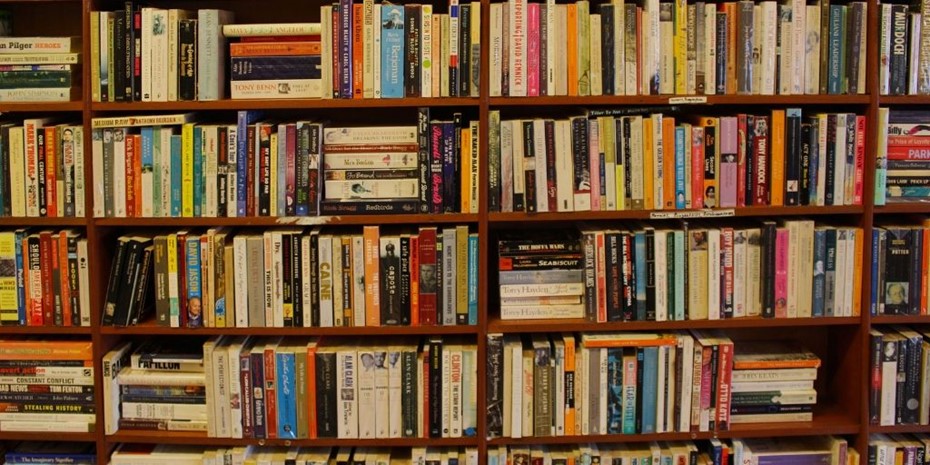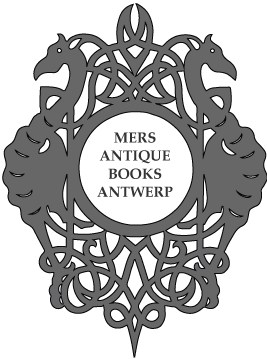



Search
Search our 8.352 News Items
CATEGORIES
We found 17 books in our category 'HISTORY OIL INDUSTRY'
We found 42 news items
We found 17 books
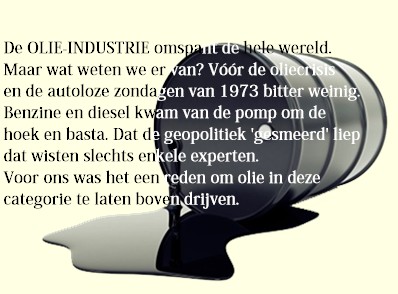
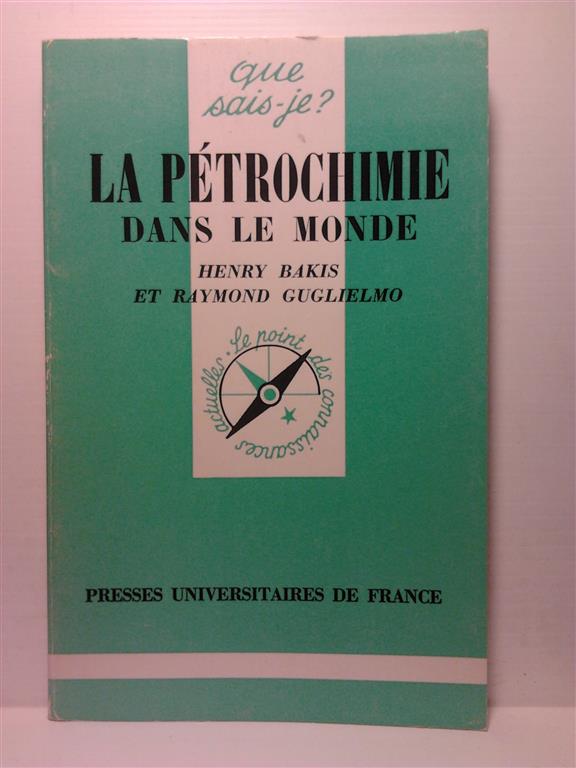
Paris
Presses Universitaire de France
1979
SAU
condition: Good
book number: 201601100112
La Pétrochimie dans le monde
Pb, 126 pp. Bibliography.
see also Le Pétrole
see also Le Pétrole
BAKIS Henry & GUGLIELMO Raymond@ wikipedia
€ 10.00
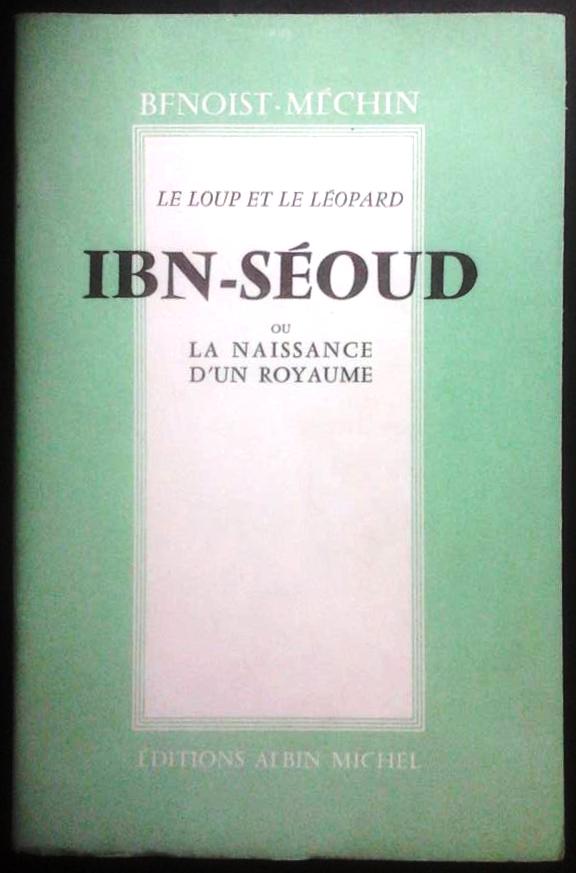
Paris
Michel Albin
1955
SAU
condition: Very good/Très bel état/Sehr gut/Zeer goed
book number: 19615
Le loup et le léopard. IBN-SEOUD ou la naissance d'un royaume
Pb, 438 pp. Bibliographie.
Jacques Michel Gabriel Paul Benoist-Méchin, né le 1er juillet 1901 à Paris 17e, et mort le 24 février 1983 est un intellectuel, journaliste, historien, musicologue et homme politique, collaborateur français ; il fut condamné à mort en 1947 pour ses activités pendant l'occupation de la France par les forces armées du IIIe Reich, avant d'être gracié. En tant qu'historien, il est spécialiste de l'armée allemande et du monde arabe.
Allah à Ibn-Séoud: 'POUR MOI TOUT N'EST QU'UN MOYEN, MÊME L'OBSTACLE.' (419)
Ibn-Séoud (°18760115 +19531109, crise d'angine de poitrine)
Jacques Michel Gabriel Paul Benoist-Méchin, né le 1er juillet 1901 à Paris 17e, et mort le 24 février 1983 est un intellectuel, journaliste, historien, musicologue et homme politique, collaborateur français ; il fut condamné à mort en 1947 pour ses activités pendant l'occupation de la France par les forces armées du IIIe Reich, avant d'être gracié. En tant qu'historien, il est spécialiste de l'armée allemande et du monde arabe.
Allah à Ibn-Séoud: 'POUR MOI TOUT N'EST QU'UN MOYEN, MÊME L'OBSTACLE.' (419)
Ibn-Séoud (°18760115 +19531109, crise d'angine de poitrine)
BENOIST-MECHIN@ wikipedia
€ 10.00

Paris
albin michel
1955
SAU
condition: very good
book number: 19616
Le roi saud ou l'Orient à l'heure de relèves
Pb, 568 pp., notes bibliographiques, cartes.
Les débuts du règne - Le relèvement de la Turquie - Le Pacte de Bagdad - l'Arabie s'interroge - La fondation d'Israël - La Révolution Egyptienne - Le drame de Suez - l'Heure de Saud.
Bio: Jacques Michel Gabriel Paul Benoist-Méchin, né le 1er juillet 1901 à Paris 17e, et mort le 24 février 1983 est un intellectuel, journaliste, historien, musicologue et homme politique, collaborateur français ; il fut condamné à mort en 1947 pour ses activités pendant l'occupation de la France par les forces armées du IIIe Reich, avant d'être gracié. En tant qu'historien, il est spécialiste de l'armée allemande et du monde arabe.
Saud devient roi le 19531109. (43)
Onassis (°Izmir/Smyrne, 1906) fond la Saudi Arabia Maritime Tanker Cie le 19540101. L'accord entre la SAMTC et l'Arabie S. est signé le 19540120. Il exclut des livraisons a Israël. (47) En effet, la capacité maximale de la Tap-Line est atteinte. l'ARAMCO est la principale victime de cet accord. Onassis disposera d'un monopole de fait. Sans le canal de Suez le marché pour les VLCC (very large crude carriers) ne pouvait qu'agrandir.
Les débuts du règne - Le relèvement de la Turquie - Le Pacte de Bagdad - l'Arabie s'interroge - La fondation d'Israël - La Révolution Egyptienne - Le drame de Suez - l'Heure de Saud.
Bio: Jacques Michel Gabriel Paul Benoist-Méchin, né le 1er juillet 1901 à Paris 17e, et mort le 24 février 1983 est un intellectuel, journaliste, historien, musicologue et homme politique, collaborateur français ; il fut condamné à mort en 1947 pour ses activités pendant l'occupation de la France par les forces armées du IIIe Reich, avant d'être gracié. En tant qu'historien, il est spécialiste de l'armée allemande et du monde arabe.
Saud devient roi le 19531109. (43)
Onassis (°Izmir/Smyrne, 1906) fond la Saudi Arabia Maritime Tanker Cie le 19540101. L'accord entre la SAMTC et l'Arabie S. est signé le 19540120. Il exclut des livraisons a Israël. (47) En effet, la capacité maximale de la Tap-Line est atteinte. l'ARAMCO est la principale victime de cet accord. Onassis disposera d'un monopole de fait. Sans le canal de Suez le marché pour les VLCC (very large crude carriers) ne pouvait qu'agrandir.
BENOIST-MECHIN@ wikipedia
€ 10.00
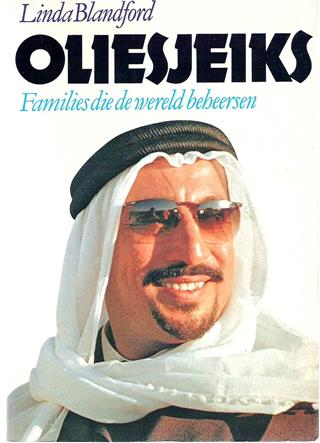
Haarlem
De Haan.
1981
SAU
condition: Goed/Bon état/Good/Gut
book number: 19760042
Oliesjeiks. Families die de wereld beheersen
Pb 264 pp. Met Nabeschouwing door Jan Stoof. ZW-foto's.
BLANDFORD Linda@ wikipedia
€ 10.00
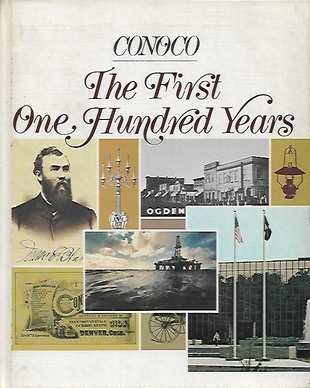
Additional images
USA
Conoco
1975
USA 
condition: Good
book number: 202002151826
CONOCO: The First One Hundred Years
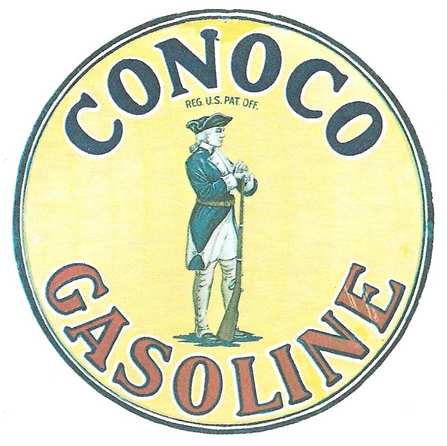 Paperback, small 4to, 240 pp., photos & illustrations, bibliography, index. The Continental Oil and Transportation Company was founded by Isaac Elder Blake in 1875.
Paperback, small 4to, 240 pp., photos & illustrations, bibliography, index. The Continental Oil and Transportation Company was founded by Isaac Elder Blake in 1875.
BLAUVELT Howard W., CEO of CONOCO (Foreword)@ wikipedia
€ 20.00
![Book cover 202501022347: GABRIELS H., JONGMAN K. | Koninklijke Olie: de eerste honderd jaar 1890-1990 [Shell]](https://www.mers.be/COVERS_MERS_BIS/202501022347.jpg)
Den Haag
Shell
1990
NLD 
condition: Very good/Très bel état/Sehr gut/Zeer goed
book number: 202501022347
Koninklijke Olie: de eerste honderd jaar 1890-1990 [Shell]
Paperback met flappen, 4to, 239 pp., illustraties, bibliografische noten, bibliografie, index/register.
Jubileumboek.
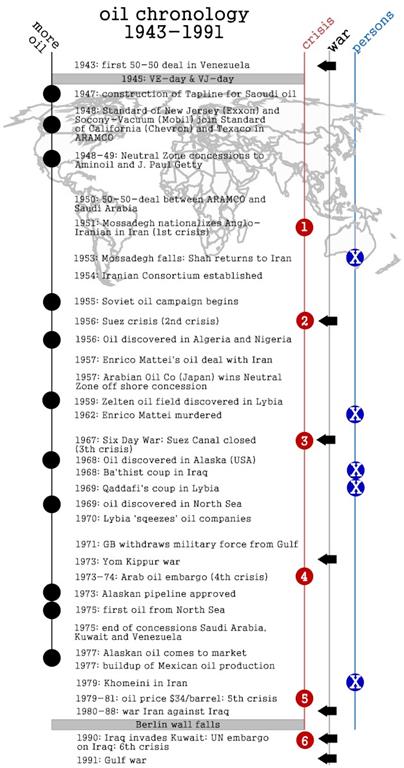
"Koninklijke Olie: de eerste honderd jaar 1890-1990" is een uitgebreide historische studie van de Koninklijke Nederlandse Shell Groep, geschreven door H. Gabriels en K. Jongman. Dit boek biedt een gedetailleerd overzicht van de ontwikkeling van het bedrijf vanaf de oprichting in 1890 tot 1990. Het boek is rijkelijk geïllustreerd en bevat veel informatie over de economische, politieke en sociale context waarin het bedrijf opereerde. Het is een waardevolle bron voor historici die geïnteresseerd zijn in de geschiedenis van de olie-industrie, bedrijfsgeschiedenis of economische geschiedenis in het algemeen.
Jubileumboek.

"Koninklijke Olie: de eerste honderd jaar 1890-1990" is een uitgebreide historische studie van de Koninklijke Nederlandse Shell Groep, geschreven door H. Gabriels en K. Jongman. Dit boek biedt een gedetailleerd overzicht van de ontwikkeling van het bedrijf vanaf de oprichting in 1890 tot 1990. Het boek is rijkelijk geïllustreerd en bevat veel informatie over de economische, politieke en sociale context waarin het bedrijf opereerde. Het is een waardevolle bron voor historici die geïnteresseerd zijn in de geschiedenis van de olie-industrie, bedrijfsgeschiedenis of economische geschiedenis in het algemeen.
GABRIELS H., JONGMAN K.@ wikipedia
€ 20.00
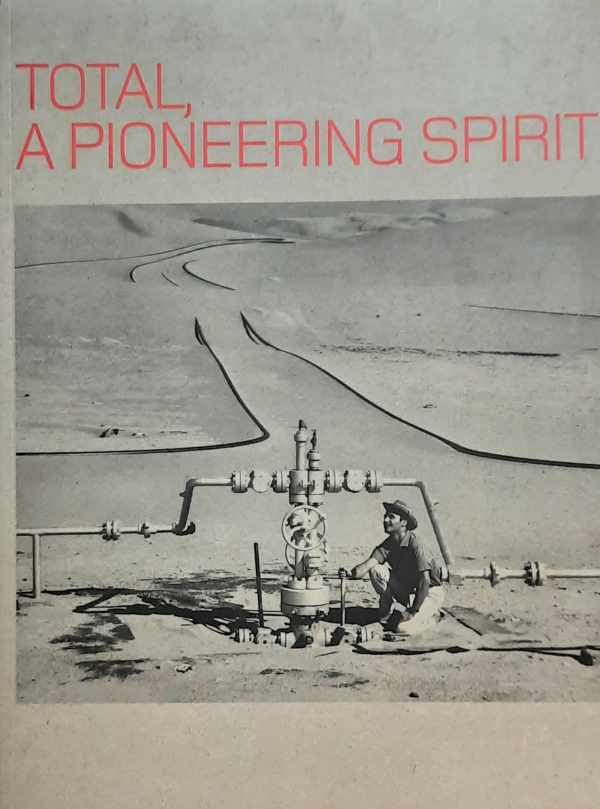
Paris
TotalEnergies
2019
FRA 
condition:
book number: 202210290001
Total, un esprit pionnier
Paperback, small 4to, 430 pp., illustrations, chronology.
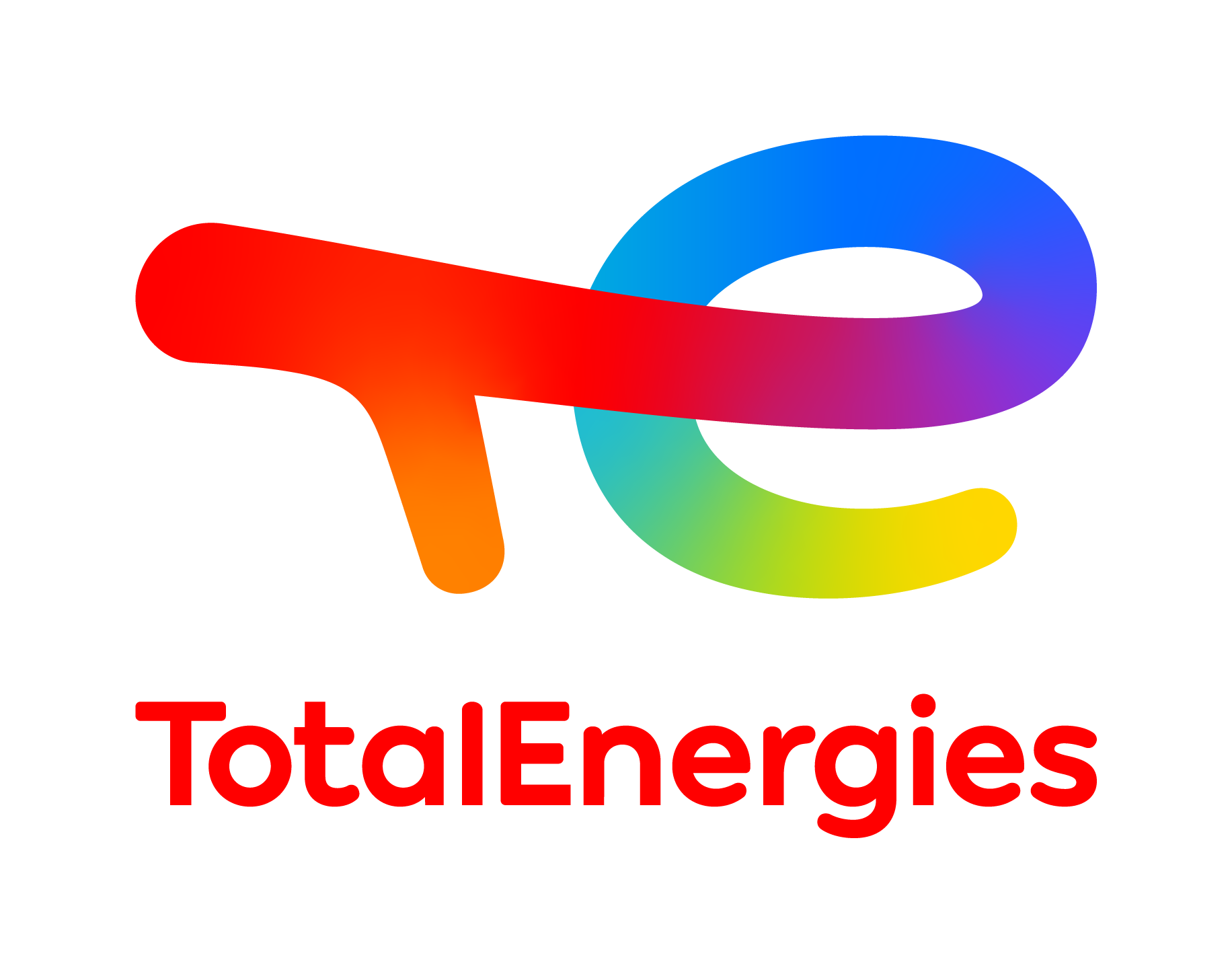
"Total, un esprit pionnier" by Tristan Gaston-Breton is a comprehensive book that chronicles the history of the Total company, one of the world's major oil and gas companies. The book delves into the company's humble beginnings in the 1920s, its growth and expansion over the decades, and its transformation into a multinational conglomerate. Gaston-Breton, a renowned historian and writer, meticulously details the company's journey, highlighting its pioneering spirit, resilience, and adaptability in the face of numerous challenges. The book also provides an insightful look into the global energy sector, geopolitics, and the role of multinational corporations in shaping the world economy. It's a must-read for those interested in business history, energy economics, and corporate strategy.

"Total, un esprit pionnier" by Tristan Gaston-Breton is a comprehensive book that chronicles the history of the Total company, one of the world's major oil and gas companies. The book delves into the company's humble beginnings in the 1920s, its growth and expansion over the decades, and its transformation into a multinational conglomerate. Gaston-Breton, a renowned historian and writer, meticulously details the company's journey, highlighting its pioneering spirit, resilience, and adaptability in the face of numerous challenges. The book also provides an insightful look into the global energy sector, geopolitics, and the role of multinational corporations in shaping the world economy. It's a must-read for those interested in business history, energy economics, and corporate strategy.
GASTON-BRETON Tristan@ wikipedia
€ 20.00

London
Weidenfeld & Nicolson
1997
INT 
condition: No dj. Very good
book number: 19970285
A Century in Oil. The Shell Transport and Trading Company 1897-1997
Hardcover, bound, small 4to, 397 pp., illustrations in colour, old photos, index.


HOWARTH Stephen@ wikipedia
€ 7.50
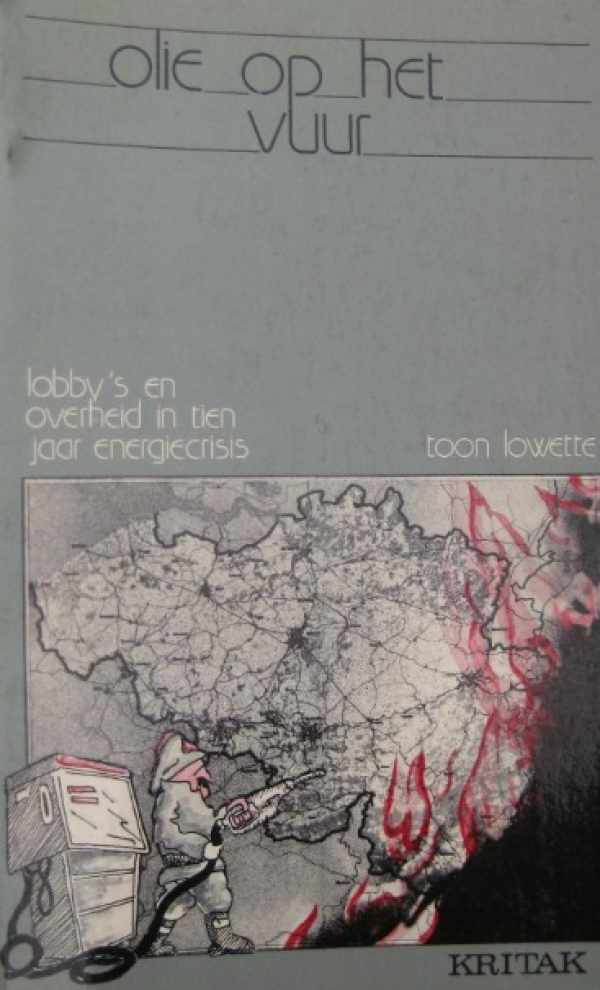
Leuven
Kritak
1983
INT 
condition: gebruikssporen, naam vorige eigenaar,
book number: 19830091
Olie op het vuur. Lobby's en overheid in tien jaar energiecrisis.
Pb, 134 pp. Een balans van het Belgische energiebeleid, tien jaar na de zogenaamde oliecrisis. Olie, gas, elektriciteit en steenkool staan als losse zuilen van een tempel zonder fronton. Machtige industrielobby's houden die aparte zuilen recht en verhinderen een samenhangend energiebeleid van de overheid. Ze gooien steeds meer olie op het vuur. Het is de gebruiker die de rekening van die Belgische onsamenhang betaalt.
Op p. 34 een tabel uit Der Spiegel van 4/2/1974: procentuele winsttoename van de oliemaatschappijen 1973/1972:
Marathon Oil (+97%),
Gulf Oil (+87%),
Standard Oil Ohio (+75%),
Getty Oil (+63%),
Exxon (+59%),
Chevron (+54%),
Standard Oil Indiana (+53%),
Union Oil California (+48%),
Mobil Oil (+47%),
Sun Oil (+47%),
Texaco (+45%),
Philips Petroleum (+42%),
Cities Services (+37%),
Atlantic Richfield (32%),
Continental Oil (+30%),
Shell (+28%).
Heldere analyse, het herlezen waard !
Op p. 34 een tabel uit Der Spiegel van 4/2/1974: procentuele winsttoename van de oliemaatschappijen 1973/1972:
Marathon Oil (+97%),
Gulf Oil (+87%),
Standard Oil Ohio (+75%),
Getty Oil (+63%),
Exxon (+59%),
Chevron (+54%),
Standard Oil Indiana (+53%),
Union Oil California (+48%),
Mobil Oil (+47%),
Sun Oil (+47%),
Texaco (+45%),
Philips Petroleum (+42%),
Cities Services (+37%),
Atlantic Richfield (32%),
Continental Oil (+30%),
Shell (+28%).
Heldere analyse, het herlezen waard !
LOWETTE Toon@ wikipedia
€ 7.50
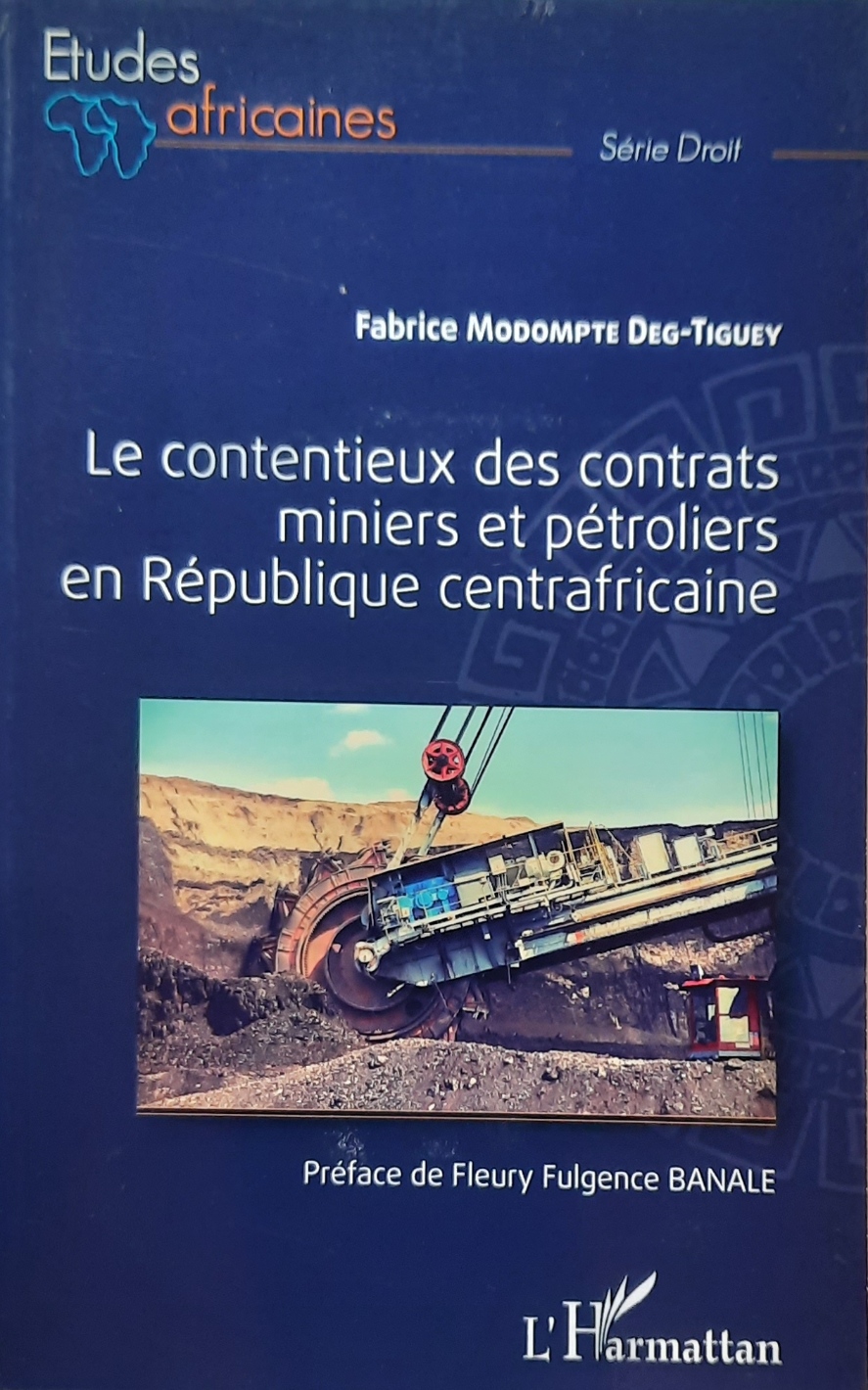
Harmattan
2020
CAF
condition: As new/comme neuf/wie neu/als nieuw.
book number: 202105320078
Le contentieux des contrats miniers et pétroliers en République centrafricaine
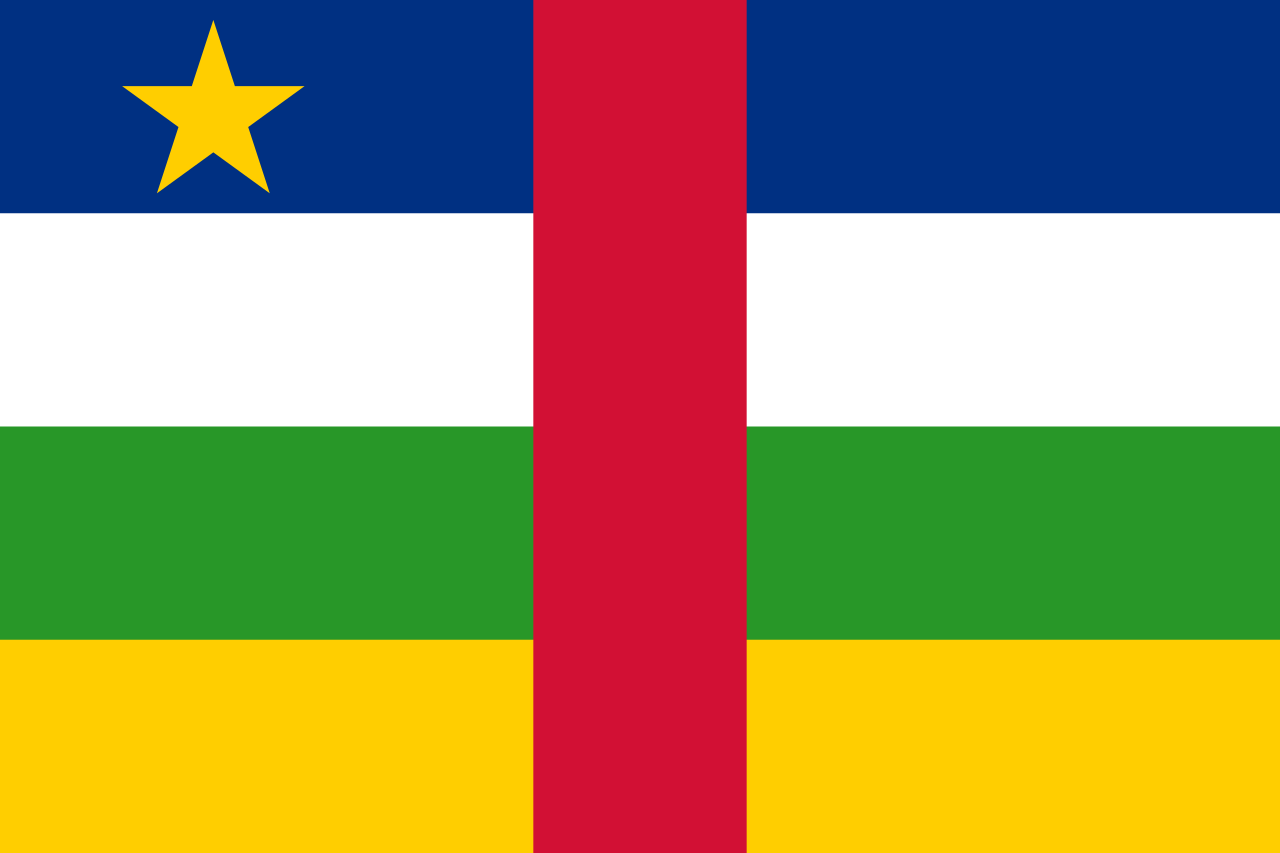 Broché, in-8, 116 pp., illustrations, notes bibliographiques, bibliographie.
Broché, in-8, 116 pp., illustrations, notes bibliographiques, bibliographie.Sur l'arbitrage.
MODOMPTE DEG-TIGUEY Fabrice@ wikipedia
€ 14.00

Zutphen
Koninklijk Instituut voor de Tropen / Uitgeverij Terra
1983
SAU
condition: Ex-library, losgesneden, losbladig gemaakt
book number: 201803030035
Saoedi-Arabië. Landendocumentatie 1983 nr 4.
Pb, in-8, 79 pp., illustraties en kaartjes, bibliografie.
Slotzin: "De islam is zowel voor interne als externe zaken van belang, was in het verleden een essentiële factor en is hoogst cruciaal voor de hedendaagse ontwikkelingen."
Slotzin: "De islam is zowel voor interne als externe zaken van belang, was in het verleden een essentiële factor en is hoogst cruciaal voor de hedendaagse ontwikkelingen."
PEPPELENBOSCH P.G.N. Drs, TEUNE-KASBERGEN W.M.E. Drs@ wikipedia
€ 7.50
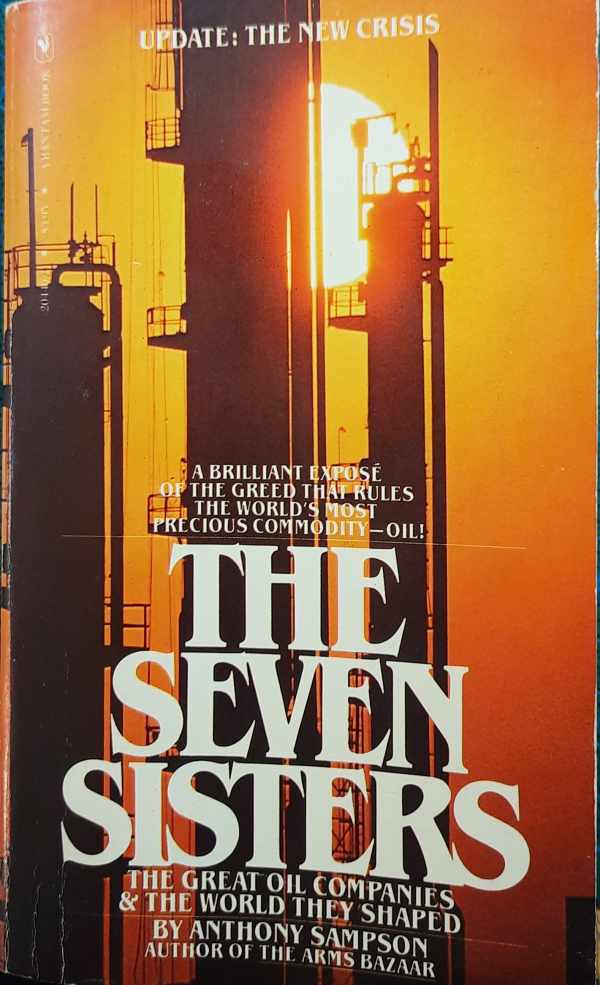
New York
Bantam
1981
USA 
condition: Goed/Bon état/Good/Gut
book number: 202403082339
The Seven Sisters - The Great Oil Companies and the World they shaped - With Update: The New Crisis
10th printing. Pocket, 393 pp. + index compiled by Robert Urwin, illustrations, maps.
A brilliant exposé on GREED that rules the world.
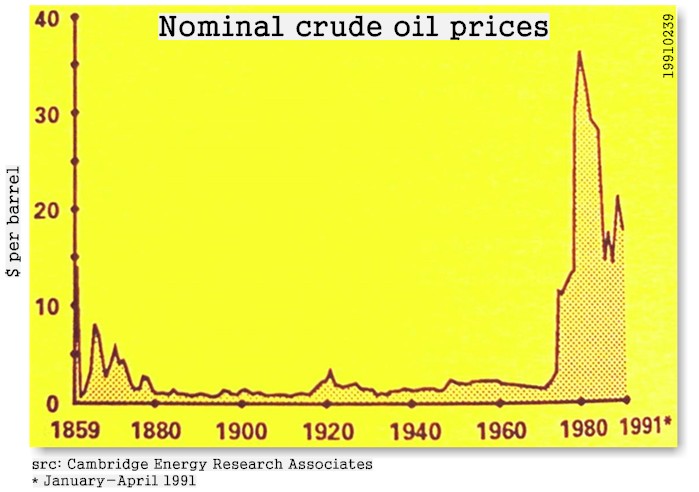
"The Seven Sisters - The Great Oil Companies and the World they shaped - With Update: The New Crisis" by Anthony Sampson is a comprehensive exploration of the oil industry and its global impact. The book delves into the history and operations of the seven major oil companies, known as the "Seven Sisters," which include Exxon, Shell, BP, Mobil, Texaco, Gulf, and Chevron. Sampson meticulously unravels the intricate web of politics, economics, and power that these companies have woven over the years. The book also includes an update on the new crisis in the oil industry, providing readers with a timely insight into the challenges and changes that the sector is currently facing. Sampson's work is a must-read for anyone interested in understanding the oil industry's influence on global politics and economy.
A brilliant exposé on GREED that rules the world.

"The Seven Sisters - The Great Oil Companies and the World they shaped - With Update: The New Crisis" by Anthony Sampson is a comprehensive exploration of the oil industry and its global impact. The book delves into the history and operations of the seven major oil companies, known as the "Seven Sisters," which include Exxon, Shell, BP, Mobil, Texaco, Gulf, and Chevron. Sampson meticulously unravels the intricate web of politics, economics, and power that these companies have woven over the years. The book also includes an update on the new crisis in the oil industry, providing readers with a timely insight into the challenges and changes that the sector is currently facing. Sampson's work is a must-read for anyone interested in understanding the oil industry's influence on global politics and economy.
SAMPSON Anthony@ wikipedia
€ 30.00
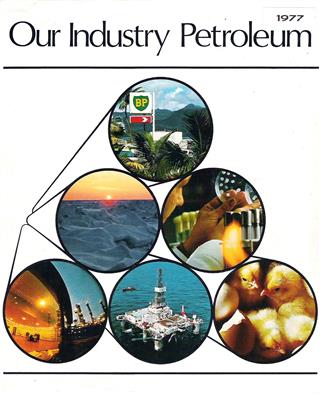
London
BP-British Petroleum Co Ltd.
1977
GBR 
condition: Very good/Très bel état/Sehr gut/Zeer goed
book number: 19770005
Our industry: Petroleum: a handbook dealing with the organisation and functions of an integrated international oil company, with particular reference to the British Petroleum Company Limited.
Hardcover green similileather with gilt on cover and spine, with ill. dj. 600 pp. Illustrations, photos most in BW, some in colour, maps. With glossary of terms used in the petroleum industry. Statistical data. Index.
"Our Industry: Petroleum" is an informative handbook that provides an in-depth look into the structure and operations of an integrated international oil company. The book, edited by P.A. Stockil, uses the British Petroleum Company Limited as a case study, offering a detailed examination of its organization and functions. The book covers a wide range of topics, including the exploration and production of oil, refining and marketing, and the financial and administrative aspects of running an oil company. It also delves into the challenges and opportunities in the industry, providing valuable insights for anyone interested in the petroleum industry. The book's comprehensive approach makes it a valuable resource for industry professionals, students, and anyone seeking a deeper understanding of the oil industry.
"Our Industry: Petroleum" is an informative handbook that provides an in-depth look into the structure and operations of an integrated international oil company. The book, edited by P.A. Stockil, uses the British Petroleum Company Limited as a case study, offering a detailed examination of its organization and functions. The book covers a wide range of topics, including the exploration and production of oil, refining and marketing, and the financial and administrative aspects of running an oil company. It also delves into the challenges and opportunities in the industry, providing valuable insights for anyone interested in the petroleum industry. The book's comprehensive approach makes it a valuable resource for industry professionals, students, and anyone seeking a deeper understanding of the oil industry.
STOCKIL P.A. Editor @ wikipedia
€ 10.00
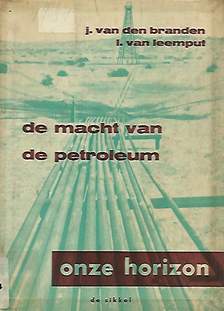
Antwerpen
De Sikkel
1960
SAU
condition: Ex-lib. Stamps.Cover not so good/Inside good
book number: 19600021
De macht van petroleum
Hardcover 144 pp. Illustraties, foto's, kaartjes.
"De USA zijn niet alleen de grootste olieproducent, maar tegelijkertijd de grootste olie-invoerder!..." (p. 38)
"De USA zijn niet alleen de grootste olieproducent, maar tegelijkertijd de grootste olie-invoerder!..." (p. 38)
VAN DEN BRANDEN J. & VAN LEEMPUT L. Dr@ wikipedia
€ 10.00
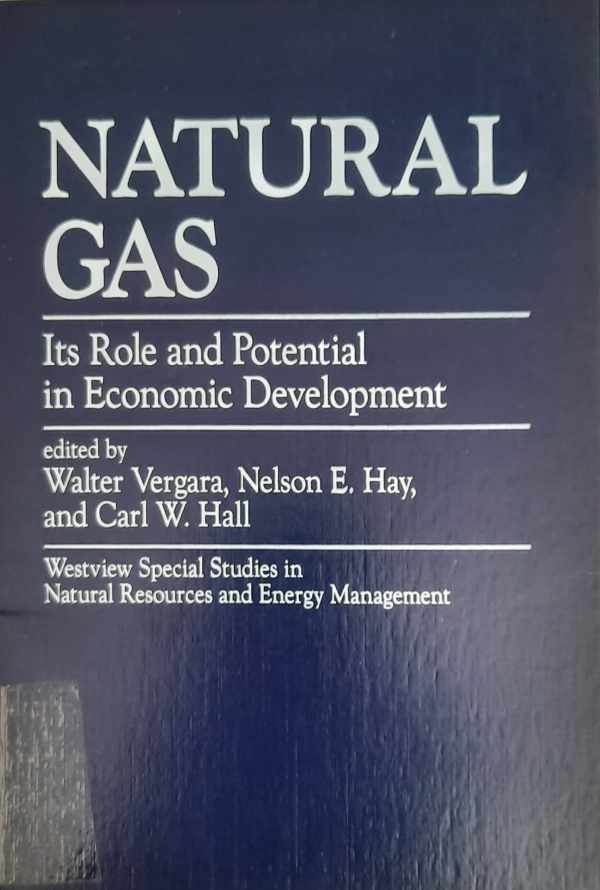
San Francisco
Westview Press
1990
condition: ex-library, usual stamp, good condition
book number: 202207311039
Natural Gas. Its role and potential in economic development
Pb, in-8, 319 pp., ill., bibl., index
Walter Vergara, along with other authors, has contributed significantly to discussions on natural gas and its potential role in economic development. In his work, "Natural Gas: Its Role and Potential in Economic Development," Vergara explores how natural gas, as a relatively cleaner energy source, can serve as a key driver in the economic growth of countries, particularly in emerging economies.
Walter Vergara, along with other authors, has contributed significantly to discussions on natural gas and its potential role in economic development. In his work, "Natural Gas: Its Role and Potential in Economic Development," Vergara explores how natural gas, as a relatively cleaner energy source, can serve as a key driver in the economic growth of countries, particularly in emerging economies.
VERGARA Walter, a.o.@ wikipedia
€ 20.00
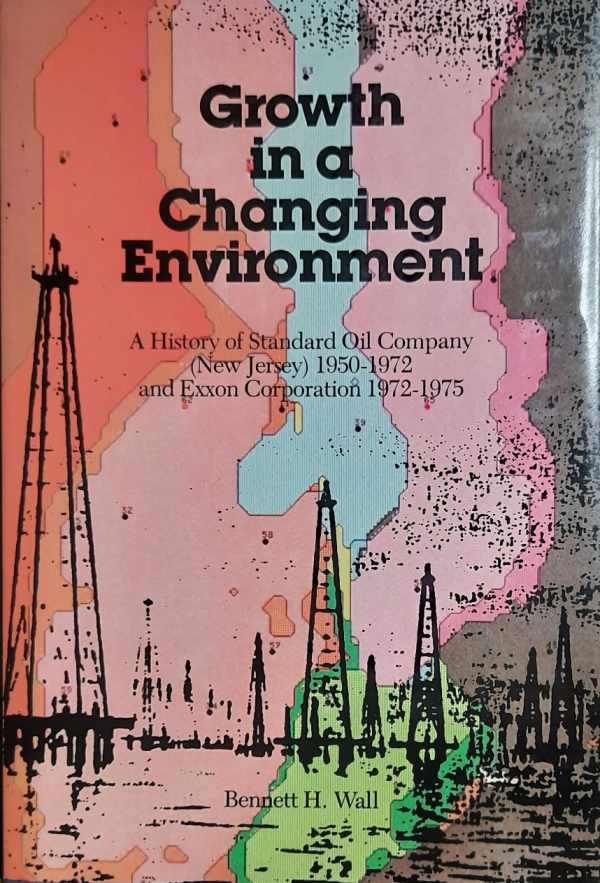
New York
McGraw-Hill
1988
USA 
condition: Very good/Très bel état/Sehr gut/Zeer goed
book number: 202110162307
Growth in a Changing Environment. A History of Standard Oil Company (New Jersey) 1950-1972 and Exxon Corporation 1972-1975
Hardcover, dj, in-8, 1020 pp., illustrations, bibliographical notes, bibliography, index.
WALL Bennett H.@ wikipedia
€ 25.00

Leuven
Van Halewyck
2007
INT 
condition: Good
book number: 202408161654
Het zwarte goud - olie als bron van hebzucht, oorlog, macht en geld : met bedrijfsportretten
Paperback, in-8, 320 pp., bibliografische noten, bibliografie
"Het zwarte goud - olie als bron van hebzucht, oorlog, macht en geld: met bedrijfsportretten" is een diepgaande analyse van de olie-industrie en de invloed ervan op de wereldpolitiek en economie. Geschreven door Klaus Werner en Thomas Seifert, biedt het boek een gedetailleerd overzicht van de geschiedenis van olie, de rol ervan in conflicten en oorlogen, en de hebzucht en macht die het voortbrengt. Het boek bevat ook portretten van belangrijke oliebedrijven, waardoor de lezer inzicht krijgt in hun invloed en werking. Dit boek is ideaal voor historici die geïnteresseerd zijn in de invloed van de olie-industrie op de wereldgeschiedenis en -politiek.
"Het zwarte goud - olie als bron van hebzucht, oorlog, macht en geld: met bedrijfsportretten" is een diepgaande analyse van de olie-industrie en de invloed ervan op de wereldpolitiek en economie. Geschreven door Klaus Werner en Thomas Seifert, biedt het boek een gedetailleerd overzicht van de geschiedenis van olie, de rol ervan in conflicten en oorlogen, en de hebzucht en macht die het voortbrengt. Het boek bevat ook portretten van belangrijke oliebedrijven, waardoor de lezer inzicht krijgt in hun invloed en werking. Dit boek is ideaal voor historici die geïnteresseerd zijn in de invloed van de olie-industrie op de wereldgeschiedenis en -politiek.
WERNER Klaus, SEIFERT Thomas@ wikipedia
€ 15.00
We found 42 news items
Dividenden oliesector stijgen naar recordniveau - Aan de pomp wordt u gemolken
ID: 202211171107
Het zijn m.a.w. uw zuurverdiende centjes die bij de superrich terechtkomen.
Hetzelfde deed zich voor na de oliecrisis van 1973
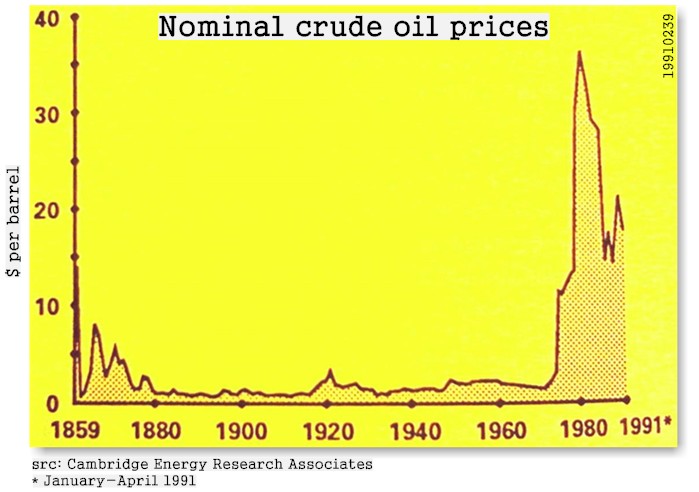
Hetzelfde deed zich voor na de oliecrisis van 1973

Land: INT

Volgens de Amerikaanse president Joe Biden zal Saoedi-Arabië de 'gevolgen' voelen van zijn beslissing om, samen met Rusland, de olieproductie te verlagen.
ID: 202210121934
De vraag is of de historische banden met het schurkenhuis van Saoed helemaal opgeblazen worden.
In ieder geval zal Europa de gevolgen dragen. Alles wat ten oosten van ons ligt (Rusland, Turkije, Syrië, Saoedi-Arabië, ...) keert zich tegen de EU.
We gaan nog wel even voetbal spelen in Qatar. Kafka had het niet kunnen verzinnen.
In ieder geval zal Europa de gevolgen dragen. Alles wat ten oosten van ons ligt (Rusland, Turkije, Syrië, Saoedi-Arabië, ...) keert zich tegen de EU.
We gaan nog wel even voetbal spelen in Qatar. Kafka had het niet kunnen verzinnen.
Land: INT

Het oliekartel OPEC en zijn bondgenoten, de zogenaamde OPEC+, hebben beslist de productiequota met 2 miljoen vaten per dag te verlagen. Daardoor steeg de olieprijs. Saoedi-Arabië steunt Rusland.
ID: 202210051907
Mocht het nog niet duidelijk zijn: Europa heeft vele vijanden. Als die gaan samenwerken wordt het uitzichtloos. Oekraïne is de spreekwoordelijke 'doos van Pandora'.
De VRT vond het niet nodig hierover te berichten in het Journaal van 19 uur.
Lees hieronder het Communiqué:
33rd OPEC and non-OPEC Ministerial MeetingNo 30/2022
Vienna, Austria
05 Oct 2022
The 45th Meeting of the Joint Ministerial Monitoring Committee (JMMC) and the 33rd OPEC and non-OPEC Ministerial Meeting took place in person at the OPEC Secretariat in Vienna, Austria, on Wednesday, 5 October 2022.
In light of the uncertainty that surrounds the global economic and oil market outlooks, and the need to enhance the long-term guidance for the oil market, and in line with the successful approach of being proactive, and pre-emptive, which has been consistently adopted by OPEC and non-OPEC Participating Countries in the Declaration of Cooperation, the Participating Countries decided to:
Reaffirm the decision of the 10th OPEC and non-OPEC Ministerial Meeting on 12 April 2020 and further endorsed in subsequent meetings, including the 19th OPEC and non-OPEC Ministerial Meeting on 18 July 2021.
Extend the duration of the Declaration of Cooperation until 31 December 2023.
Adjust downward the overall production by 2 mb/d from the August 2022 required production levels, starting November 2022 for OPEC and non-OPEC Participating Countries as per the attached table.
Reconfirm the baseline adjustment approved at the 19th OPEC and non-OPEC Ministerial Meeting.
Adjust the frequency of the monthly meetings to become every two months for the Joint Ministerial Monitoring Committee (JMMC).
Hold the OPEC and non-OPEC Ministerial Meeting (ONOMM) every six months in accordance with the ordinary OPEC scheduled conference.
Grant the JMMC the authority to hold additional meetings, or to request an OPEC and non-OPEC Ministerial Meeting at any time to address market developments if necessary.
Extend the compensation period to 31 March 2023. Compensation plans should be submitted in accordance with the statement of the 15th OPEC and non-OPEC Ministerial Meeting.
Reiterate the critical importance of adhering to full conformity.
Hold the 34th OPEC and non-OPEC Ministerial Meeting on 4 December 2022.
Member Countries
The Organization of the Petroleum Exporting Countries (OPEC) was founded in Baghdad, Iraq, with the signing of an agreement in September 1960 by five countries namely Islamic Republic of Iran, Iraq, Kuwait, Saudi Arabia and Venezuela. They were to become the Founder Members of the Organization.
These countries were later joined by Qatar (1961), Indonesia (1962), Libya (1962), the United Arab Emirates (1967), Algeria (1969), Nigeria (1971), Ecuador (1973), Gabon (1975), Angola (2007), Equatorial Guinea (2017) and Congo (2018).
Ecuador suspended its membership in December 1992, rejoined OPEC in October 2007, but decided to withdraw its membership of OPEC effective 1 January 2020. Indonesia suspended its membership in January 2009, reactivated it again in January 2016, but decided to suspend its membership once more at the 171st Meeting of the OPEC Conference on 30 November 2016. Gabon terminated its membership in January 1995. However, it rejoined the Organization in July 2016. Qatar terminated its membership on 1 January 2019.
This means that, currently, the Organization has a total of 13 Member Countries.
The OPEC Statute distinguishes between the Founder Members and Full Members - those countries whose applications for membership have been accepted by the Conference.
The Statute stipulates that “any country with a substantial net export of crude petroleum, which has fundamentally similar interests to those of Member Countries, may become a Full Member of the Organization, if accepted by a majority of three-fourths of Full Members, including the concurring votes of all Founder Members.”
The Statute further provides for Associate Members which are those countries that do not qualify for full membership, but are nevertheless admitted under such special conditions as may be prescribed by the Conference.
OPEC+
A number of non-OPEC member countries also participate in the organisation's initiatives such as voluntary supply cuts in order to further bind policy objectives between OPEC and non-OPEC members. This loose grouping of countries, known as OPEC+, includes Azerbaijan, Bahrain, Brunei, Kazakhstan, Malaysia, Mexico, Oman, Philippines, Russia, Sudan and South Sudan.
De VRT vond het niet nodig hierover te berichten in het Journaal van 19 uur.
Lees hieronder het Communiqué:
33rd OPEC and non-OPEC Ministerial MeetingNo 30/2022
Vienna, Austria
05 Oct 2022
The 45th Meeting of the Joint Ministerial Monitoring Committee (JMMC) and the 33rd OPEC and non-OPEC Ministerial Meeting took place in person at the OPEC Secretariat in Vienna, Austria, on Wednesday, 5 October 2022.
In light of the uncertainty that surrounds the global economic and oil market outlooks, and the need to enhance the long-term guidance for the oil market, and in line with the successful approach of being proactive, and pre-emptive, which has been consistently adopted by OPEC and non-OPEC Participating Countries in the Declaration of Cooperation, the Participating Countries decided to:
Reaffirm the decision of the 10th OPEC and non-OPEC Ministerial Meeting on 12 April 2020 and further endorsed in subsequent meetings, including the 19th OPEC and non-OPEC Ministerial Meeting on 18 July 2021.
Extend the duration of the Declaration of Cooperation until 31 December 2023.
Adjust downward the overall production by 2 mb/d from the August 2022 required production levels, starting November 2022 for OPEC and non-OPEC Participating Countries as per the attached table.
Reconfirm the baseline adjustment approved at the 19th OPEC and non-OPEC Ministerial Meeting.
Adjust the frequency of the monthly meetings to become every two months for the Joint Ministerial Monitoring Committee (JMMC).
Hold the OPEC and non-OPEC Ministerial Meeting (ONOMM) every six months in accordance with the ordinary OPEC scheduled conference.
Grant the JMMC the authority to hold additional meetings, or to request an OPEC and non-OPEC Ministerial Meeting at any time to address market developments if necessary.
Extend the compensation period to 31 March 2023. Compensation plans should be submitted in accordance with the statement of the 15th OPEC and non-OPEC Ministerial Meeting.
Reiterate the critical importance of adhering to full conformity.
Hold the 34th OPEC and non-OPEC Ministerial Meeting on 4 December 2022.
Member Countries
The Organization of the Petroleum Exporting Countries (OPEC) was founded in Baghdad, Iraq, with the signing of an agreement in September 1960 by five countries namely Islamic Republic of Iran, Iraq, Kuwait, Saudi Arabia and Venezuela. They were to become the Founder Members of the Organization.
These countries were later joined by Qatar (1961), Indonesia (1962), Libya (1962), the United Arab Emirates (1967), Algeria (1969), Nigeria (1971), Ecuador (1973), Gabon (1975), Angola (2007), Equatorial Guinea (2017) and Congo (2018).
Ecuador suspended its membership in December 1992, rejoined OPEC in October 2007, but decided to withdraw its membership of OPEC effective 1 January 2020. Indonesia suspended its membership in January 2009, reactivated it again in January 2016, but decided to suspend its membership once more at the 171st Meeting of the OPEC Conference on 30 November 2016. Gabon terminated its membership in January 1995. However, it rejoined the Organization in July 2016. Qatar terminated its membership on 1 January 2019.
This means that, currently, the Organization has a total of 13 Member Countries.
The OPEC Statute distinguishes between the Founder Members and Full Members - those countries whose applications for membership have been accepted by the Conference.
The Statute stipulates that “any country with a substantial net export of crude petroleum, which has fundamentally similar interests to those of Member Countries, may become a Full Member of the Organization, if accepted by a majority of three-fourths of Full Members, including the concurring votes of all Founder Members.”
The Statute further provides for Associate Members which are those countries that do not qualify for full membership, but are nevertheless admitted under such special conditions as may be prescribed by the Conference.
OPEC+
A number of non-OPEC member countries also participate in the organisation's initiatives such as voluntary supply cuts in order to further bind policy objectives between OPEC and non-OPEC members. This loose grouping of countries, known as OPEC+, includes Azerbaijan, Bahrain, Brunei, Kazakhstan, Malaysia, Mexico, Oman, Philippines, Russia, Sudan and South Sudan.
Land: INT

Omzet Aramco stijgt naar 110 miljard US$
ID: 202208152158
Aramco is the latest in a string of oil giants to publish record profits this year. Where the company recorded $49 billion in net income at the end of 2020, it had risen by more than 120 percent by the end of 2021, to $110 billion. The company puts the latest increases down to “higher crude oil prices and volumes sold, as well as strong refining margins.”

VN-secretaris-generaal hekelt de ‘stuitende hebzucht’ van olie- en gasbedrijven - Hun superwinsten op de kap van de armsten en de kwetsbaarsten noemt hij IMMOREEL
ID: 202208041759
Land: INT
Categorie: HISTORY OIL INDUSTRY - GESJOEMEL

TotalEnergies en de Oegandese regering willen in het Murchisonnatuurpark een olieveld en een 1.500 kilometer lange pijpleiding aanleggen.
ID: 202207304566
Neokolonialisme is terug van nooit weggeweest
Land: UGA
Categorie: HISTORY OIL INDUSTRY - GESJOEMEL

Oliereuzen boeken weer recordwinsten
ID: 202207301022
Land: INT
Categorie: HISTORY OIL INDUSTRY - GESJOEMEL

17 december 2019: Total tekent voor de exploitatie van twee offshore 'oil-blocks' in Angola
ID: 201912175522
Land: AGO

Histoire de Total (et Petrofina) - Total, a pioneering spirit - Episode 1: The age of oil 1914 – 1924, etcetera
ID: 201912168264
Total, a pioneering spirit - Episode 1: The age of oil 1914 – 1924
Total, a pioneering spirit - Episode 2: The time of pioneers 1924 – 1945
Total, a pioneering spirit - Episode 3: Prodigious expansion 1946 – 1960
deel 4 ontbreekt op YouTube
Total, a pioneering spirit - Episode 5: Major oil shocks 1974 – 1997
Total, a pioneering spirit - Episode 6: Together, we will be stronger 1998 – 2000
How Total Started, Grew and Became a $242 Billion Company
Total, a pioneering spirit - Episode 2: The time of pioneers 1924 – 1945
Total, a pioneering spirit - Episode 3: Prodigious expansion 1946 – 1960
deel 4 ontbreekt op YouTube
Total, a pioneering spirit - Episode 5: Major oil shocks 1974 – 1997
Total, a pioneering spirit - Episode 6: Together, we will be stronger 1998 – 2000
How Total Started, Grew and Became a $242 Billion Company
Land: FRA, BEL

oil pipelines in conflict zones
ID: 201601100414
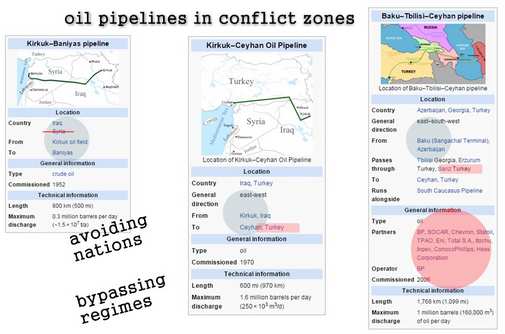
Land: TUR

Saudi’s willen deel oliereus ARAMCO verkopen
ID: 201601090910
Het plan om het reusachtige oliebedrijf Saudi Aramco naar de beurs te brengen stuit op verbazing en scepsis.
De overheid van Saudi-Arabië overweegt een deel van het staatsoliebedrijf Saudi Aramco te privatiseren. De Saudi’s willen zo de steeds lager uitvallende opbrengsten uit de olieverkoop compenseren. De lage olieprijs brengt de begroting van het land uit evenwicht. Vorig jaar al kondigde Saudi-Arabië aan dat er privatiseringen en bezuinigingen zullen volgen om de begrotingstekorten in toom te houden.
Een privatisering van het staatsbedrijf Aramco zou een historische stap zijn. De plannen werden gisteren in The Economist aangekondigd door prins Mohammed Bin Salman. Hij vergeleek het project met de privatiseringen die premier Margaret Thatcher in het Groot-Brittannië van de jaren 80 doorvoerde.
Meer olie dan VS
Aramco is gigantisch. Het bedrijf is de draaischijf van de wereldwijde olie-industrie. De olievoorraden van de onderneming zijn tienmaal zo groot als die van ExxonMobil, nu het grootste beursgenoteerde oliebedrijf. Het pompt meer olie op dan de VS in zijn geheel voortbrengt. Aramco is voor de wereldwijde olie-industrie wat Wal-Mart is voor de detailhandel, of Coca-Cola voor de frisdrankwereld. Een beursnotering zou van Aramco volgens The Economist mogelijk meteen het meest waardevolle bedrijf ter wereld maken, met een grotere beurswaarde dan Apple. Dat technologiebedrijf is nu 535 miljard dollar waard.
Maar analisten denken dat de waardering beperkt wordt omdat de Saudi’s de meerderheid zullen willen behouden. Het Russische beursgenoteerde staatsbedrijf Rosneft is bijvoorbeeld maar 35 miljard dollar waard, hoewel het tot een van de grootste producenten ter wereld behoort.
Transparantie
In de financiële wereld werden de plannen van de Saudi’s met verbazing begroet. Aramco is nu een erg discreet bedrijf. Een beursnotering zou transparantie noodzakelijk maken. Dat erkent Bin Salman ook in The Economist, maar hij ziet dat als een pluspunt omdat het corruptie tegengaat. Daarnaast is ook de timing nogal ongelukkig: met de olieprijs op zijn laagste peil in meer dan een decennium zullen de aandelen van Aramco nu veel minder opbrengen dan een paar jaar geleden het geval zou zijn geweest. In Saudi-Arabië is het niet ongebruikelijk dat de prijs van aandelen bij een beursgang met opzet laag gehouden wordt, als een soort herverdeling van welvaart.
Een pluspunt voor Aramco zou wel zijn dat de productiekosten tot de laagste ter wereld behoren, omdat de olievoorraden in Saudi-Arabië relatief makkelijk te ontginnen zijn.
Een beursnotering zou de langetermijnvisie van de onderneming ondersteunen, aldus een mededeling van het bedrijf zelf, inclusief een ‘voorzichtig beheer van de voorraad fossiele brandstof in het Koninkrijk’. Volgens de mededeling zou, behalve een notering voor het moederbedrijf, ook een beursgang voor een of meer dochterbedrijven tot de mogelijkheden behoren. Aramco heeft in 2008 al eens een dochterbedrijf naar de beurs van Riyad gebracht, Rabigh Refining and Petrochemical Company. Die is nu 2,3 miljard dollar waard, de helft van de waarde ten tijde van de beursgang.
Moderniseren
Volgens The Economist zou als een eerste stap 5 procent van het Aramco-aandelenkapitaal genoteerd kunnen worden op de beurs van Riyad. Dat zou deze beurs, die sinds vorig jaar ook toegankelijk is voor buitenlandse investeerders, aantrekkelijker maken. Een notering op een grote internationale beurs zou ook mogelijk zijn, maar brengt meer rapporteringsverplichtingen met zich mee.
Mohammed bin Salman is de zoon van koning Salman, die vorig jaar de troon besteeg. Hij wil het land economisch moderniseren, omdat de afhankelijkheid van de olie-industrie een probleem dreigt te worden.
De overheid van Saudi-Arabië overweegt een deel van het staatsoliebedrijf Saudi Aramco te privatiseren. De Saudi’s willen zo de steeds lager uitvallende opbrengsten uit de olieverkoop compenseren. De lage olieprijs brengt de begroting van het land uit evenwicht. Vorig jaar al kondigde Saudi-Arabië aan dat er privatiseringen en bezuinigingen zullen volgen om de begrotingstekorten in toom te houden.
Een privatisering van het staatsbedrijf Aramco zou een historische stap zijn. De plannen werden gisteren in The Economist aangekondigd door prins Mohammed Bin Salman. Hij vergeleek het project met de privatiseringen die premier Margaret Thatcher in het Groot-Brittannië van de jaren 80 doorvoerde.
Meer olie dan VS
Aramco is gigantisch. Het bedrijf is de draaischijf van de wereldwijde olie-industrie. De olievoorraden van de onderneming zijn tienmaal zo groot als die van ExxonMobil, nu het grootste beursgenoteerde oliebedrijf. Het pompt meer olie op dan de VS in zijn geheel voortbrengt. Aramco is voor de wereldwijde olie-industrie wat Wal-Mart is voor de detailhandel, of Coca-Cola voor de frisdrankwereld. Een beursnotering zou van Aramco volgens The Economist mogelijk meteen het meest waardevolle bedrijf ter wereld maken, met een grotere beurswaarde dan Apple. Dat technologiebedrijf is nu 535 miljard dollar waard.
Maar analisten denken dat de waardering beperkt wordt omdat de Saudi’s de meerderheid zullen willen behouden. Het Russische beursgenoteerde staatsbedrijf Rosneft is bijvoorbeeld maar 35 miljard dollar waard, hoewel het tot een van de grootste producenten ter wereld behoort.
Transparantie
In de financiële wereld werden de plannen van de Saudi’s met verbazing begroet. Aramco is nu een erg discreet bedrijf. Een beursnotering zou transparantie noodzakelijk maken. Dat erkent Bin Salman ook in The Economist, maar hij ziet dat als een pluspunt omdat het corruptie tegengaat. Daarnaast is ook de timing nogal ongelukkig: met de olieprijs op zijn laagste peil in meer dan een decennium zullen de aandelen van Aramco nu veel minder opbrengen dan een paar jaar geleden het geval zou zijn geweest. In Saudi-Arabië is het niet ongebruikelijk dat de prijs van aandelen bij een beursgang met opzet laag gehouden wordt, als een soort herverdeling van welvaart.
Een pluspunt voor Aramco zou wel zijn dat de productiekosten tot de laagste ter wereld behoren, omdat de olievoorraden in Saudi-Arabië relatief makkelijk te ontginnen zijn.
Een beursnotering zou de langetermijnvisie van de onderneming ondersteunen, aldus een mededeling van het bedrijf zelf, inclusief een ‘voorzichtig beheer van de voorraad fossiele brandstof in het Koninkrijk’. Volgens de mededeling zou, behalve een notering voor het moederbedrijf, ook een beursgang voor een of meer dochterbedrijven tot de mogelijkheden behoren. Aramco heeft in 2008 al eens een dochterbedrijf naar de beurs van Riyad gebracht, Rabigh Refining and Petrochemical Company. Die is nu 2,3 miljard dollar waard, de helft van de waarde ten tijde van de beursgang.
Moderniseren
Volgens The Economist zou als een eerste stap 5 procent van het Aramco-aandelenkapitaal genoteerd kunnen worden op de beurs van Riyad. Dat zou deze beurs, die sinds vorig jaar ook toegankelijk is voor buitenlandse investeerders, aantrekkelijker maken. Een notering op een grote internationale beurs zou ook mogelijk zijn, maar brengt meer rapporteringsverplichtingen met zich mee.
Mohammed bin Salman is de zoon van koning Salman, die vorig jaar de troon besteeg. Hij wil het land economisch moderniseren, omdat de afhankelijkheid van de olie-industrie een probleem dreigt te worden.
Land: SAU

1950: Oil Across Arabia: Transarabian Pipeline Construction
ID: 201512041206
Land: SAU

ID: 201410212300
CEO de Total meurt dans un accident d'avion
Formation: Diplômé de l'ESCP. Carrière: Il entre chez Total en 1974 à la direction financière en tant que responsable du budget, puis du financement des filiales Exploration-Production. En 1987, il devient trésorier du groupe. Il intègre la filiale Trading et Moyen-Orient en 1990 où il occupe successivement les postes de directeur financier, directeur adjoint Moyen-Orient, puis directeur Moyen-Orient et directeur général adjoint. En 1995, il prend la direction générale de Total Moyen-Orient. Après la fusion de Total avec Petrofina en 1999, il devient directeur général Exploration-Production. En 2007, il est nommé directeur général du groupe. Particularités: Chevalier de la Légion d'honneur et de l'ordre national du Mérite. Né en : 1951 à Mareuil-sur-Lay-Dissais Etat matrimonial : marié et père de trois enfants. Circonstances: Il meurt le 20 octobre 2014 dans un accident d'avion. L'avion du PDG de Total a heurté une déneigeuse sur la piste de l'aéroport de Vnoukovo, à Moscou, causant la mort de quatre personnes. (Libé 20141021)

Formation: Diplômé de l'ESCP. Carrière: Il entre chez Total en 1974 à la direction financière en tant que responsable du budget, puis du financement des filiales Exploration-Production. En 1987, il devient trésorier du groupe. Il intègre la filiale Trading et Moyen-Orient en 1990 où il occupe successivement les postes de directeur financier, directeur adjoint Moyen-Orient, puis directeur Moyen-Orient et directeur général adjoint. En 1995, il prend la direction générale de Total Moyen-Orient. Après la fusion de Total avec Petrofina en 1999, il devient directeur général Exploration-Production. En 2007, il est nommé directeur général du groupe. Particularités: Chevalier de la Légion d'honneur et de l'ordre national du Mérite. Né en : 1951 à Mareuil-sur-Lay-Dissais Etat matrimonial : marié et père de trois enfants. Circonstances: Il meurt le 20 octobre 2014 dans un accident d'avion. L'avion du PDG de Total a heurté une déneigeuse sur la piste de l'aéroport de Vnoukovo, à Moscou, causant la mort de quatre personnes. (Libé 20141021)

Land: FRA

15 oktober 2007: Canal+ zendt eerste deel uit van de telefilm 'Les Prédateurs' - over de affaire Elf en de werking van het neokolonialisme van Frankrijk (Congo Brazzaville, Gabon, ...)
ID: 200710152067
Land: FRA

12 december 2004: olieprijs op recordhoogte: 40,77 dollar per vat
ID: 200405128870
Olievat was nooit duurder: 40,77 dollar/vat in New York (12/05 21:37)
(Belga) De olie is nooit duurder geweest: in New York sloot de barrell (vat van 159 liter) woensdag op 40,77 dollar. Oorzaken van deze hoogste prijs ooit zijn de angst voor aanslagen op olie-infrastructuur in het Midden-Oosten en ontoereikende Amerikaanse benzinevoorraden.
Het vorige record (40,42 dollar) werd op 11 oktober 1990 opgetekend. Ook de benzineprijs eindigde woensdag op de New Yorkse beurs op een recordbedrag: 1,3735 dollar per gallon (=3,8 liter). (LAN)
(Belga)
(Belga) De olie is nooit duurder geweest: in New York sloot de barrell (vat van 159 liter) woensdag op 40,77 dollar. Oorzaken van deze hoogste prijs ooit zijn de angst voor aanslagen op olie-infrastructuur in het Midden-Oosten en ontoereikende Amerikaanse benzinevoorraden.
Het vorige record (40,42 dollar) werd op 11 oktober 1990 opgetekend. Ook de benzineprijs eindigde woensdag op de New Yorkse beurs op een recordbedrag: 1,3735 dollar per gallon (=3,8 liter). (LAN)
(Belga)
Land: INT

31 januari 2003: Venezuela: stakingen doven uit
ID: 200301311585
noot: normaal draait de olieproductie rond de 2,8 miljoen vaten per dag, tijdens de staking zakte dat tot 150.000 vaten per dag.
Het staatsoliebedrijf is Petroleos de Venezuela (PDVSA)
Het staatsoliebedrijf is Petroleos de Venezuela (PDVSA)
Land: VEN

december 1998: Total koopt Petrofina
ID: 199812004573
voor de neus van ELF weggekaapt
Land: FRA

11 oktober 1990: olieprijs op recordhoogte: 40,42 dollar/vat
ID: 199010115572
Olievat was nooit duurder: 40,77 dollar/vat in New York (12/05 21:37)
(Belga) De olie is nooit duurder geweest: in New York sloot de barrell (vat van 159 liter) woensdag op 40,77 dollar. Oorzaken van deze hoogste prijs ooit zijn de angst voor aanslagen op olie-infrastructuur in het Midden-Oosten en ontoereikende Amerikaanse benzinevoorraden.
Het vorige record (40,42 dollar) werd op 11 oktober 1990 opgetekend. Ook de benzineprijs eindigde woensdag op de New Yorkse beurs op een recordbedrag: 1,3735 dollar per gallon (=3,8 liter). (LAN)
(Belga)
(Belga) De olie is nooit duurder geweest: in New York sloot de barrell (vat van 159 liter) woensdag op 40,77 dollar. Oorzaken van deze hoogste prijs ooit zijn de angst voor aanslagen op olie-infrastructuur in het Midden-Oosten en ontoereikende Amerikaanse benzinevoorraden.
Het vorige record (40,42 dollar) werd op 11 oktober 1990 opgetekend. Ook de benzineprijs eindigde woensdag op de New Yorkse beurs op een recordbedrag: 1,3735 dollar per gallon (=3,8 liter). (LAN)
(Belga)
Land: INT

Hoe het groeide: een bijdrage tot de geschiedenis van Petrofina & Purfina
ID: 198900007821
Hoe het groeide: een bijdrage tot de geschiedenis van Petrofina & Purfina
Nieuwe opzoeking
Titel
Publicatietype Book
Publicatiejaar 1989
Auteurs
Trefwoorden bijdrage, chemie, geschiedenis, groei, Petrofina, petroleum, petroleumindustrie, Purfina, scheikunde
https://www.etwie.be/publicatie/hoe-het-groeide-een-bijdrage-tot-de-geschiedenis-van-petrofina-purfina
Nieuwe opzoeking
Titel
Publicatietype Book
Publicatiejaar 1989
Auteurs
Trefwoorden bijdrage, chemie, geschiedenis, groei, Petrofina, petroleum, petroleumindustrie, Purfina, scheikunde
https://www.etwie.be/publicatie/hoe-het-groeide-een-bijdrage-tot-de-geschiedenis-van-petrofina-purfina
Land: BEL

OPEC beslist oliereductie
ID: 198410311599
van 17,5 naar 16 miljoen vaten per dag
Land: INT

OPEC: beperking olieproductie
ID: 198203201599
NIHIL
Land: INT

1979: 2de oliecrisis
ID: 197900003457
gedurende 1979 loopt olieprijs steil op (FET 20030215: 7)
Land: INT

12 maart 1976: Saoedi-Arabië: oliemaatschappij Aramco genationaliseerd
ID: 197603122385
Land: SAU

1976: oliemaatschappij ELF opgericht
ID: 197600005644
Société Nationale Elf Aquitaine, gegroeid uit een groot aantal Franse petrochemische en andere industrieën. Later wordt dit TotalFinaElf
Land: FRA

eerste olie-uitvoer uit Zaïre
ID: 197511285912
Land: COD

OPEC verdubbelt olieprijs
ID: 197312221599
van 5 naar 11,6 dollar per baril.
Een baril is 159 liter.
Een baril is 159 liter.
Land: INT

OPEC kondigt olie-boycot aan in The Times
ID: 197310171599
"Oorlogsverklaring was een advertentie van één pagina in het Londense dagblad The Times. De tekst bestond uit de resolutie van de 21ste Ramadan (17/10/1973) van de Organisatie van Arabische Olie Exporterende Landen." Vooral USA en NLD zullen geboycot worden. (Sesam 1996:344)
Noot: datum advertentie is waarschijnlijk iets later.
Noot: datum advertentie is waarschijnlijk iets later.
Land: INT

1 juli 1972: Standard Oil Company wordt Exxon
ID: 197207015564
naamsverandering van Standard Oil Company
Land: USA

OPEC eist wereldmarkt voor olie
ID: 197012121599
A Caracas, l'OPEP exige un "marchandage planétaire" du prix du pétrole
Land: INT

1962: Accords d'Evian over Algerijnse onafh. maar FRA behoudt controle over olie
ID: 196203182542
Accords d'Evian: erkenning van de Algerijnse onafhankelijkheid en integratie van de Sahara bij Algerije.
Op 8 april 1962 zeggen 90% van de Fransen "ja" tijdens een referendum over de Accords d'Evian.
18 mars 1962 : les accords d'Evian
Les accords d'Evian sont signés, le 18 mars 1962, avant d'être approuvés massivement par les Français, le 8 avril 1962 (90,6 % de oui au référendum) puis soumis aux Algériens (1er juillet 1962). La France reconnaît la souveraineté de l'Etat algérien, mais conserve un statut privilégié, notamment sur le Sahara et ses ressources pétrolières et en conservant sa base militaire de Mers-el-Kébir. En contrepartie, la France s'engage à aider économiquement l'Algérie en continuant de réaliser le plan de Constantine de 1958 (attributions de terres, construction de logements, scolarisation, etc.). Dans les textes, les Européens d'Algérie ont trois ans pour choisir entre la nationalité française ou algérienne. Mais les violences perpétrées par l'OAS - attentats, politique de terre brûlée - ont définitivement séparé les communautés musulmane et européenne. C'est dans la panique que les Français quittent l'Algérie pour la France (200 000 Européens de mars à mai). Les harkis (musulmans ayant combattu auprès des Français), laissés pour compte, sont la cible de violentes représailles.
L'Algérie, fraîchement indépendante, est en proie aux divisions. Le 25 septembre 1962, naît toutefois la République algérienne démocratique et populaire. Ahmed Ben Bella en est élu le président de la République, le 15 septembre 1963.
http://www.france5.fr/algerie/frise/W00192/1/71556.cfm (20030624)
TITRE PREMIER
HYDROCARBURES LIQUIDES ET GAZEUX
A) Garantie des droits acquis et de leurs prolongements
§ 1. L'Algérie confirme l'intégralité des droits attachés aux titres miniers et de transport accordés par la République française en application du Code pétrolier saharien.
Le présent paragraphe concerne l'ensemble des titres miniers et de transport délivrés par la France avant l'autodétermination; toutefois, après le cessez-le-feu, il ne sera pas délivré de nouveaux permis exclusifs de recherche sur des surfaces non encore attribuées, sauf si les zones intéressées ont fait l'objet d'un avis de mise à l'enquête publié avant cette date au Journal officiel de la République française.
a) Par "titres miniers et de transport" il faut entendre essentiellement :
1. Les autorisations de prospection;
2. Les permis exclusifs de recherche, dits permis H;
3. Les autorisations provisoires d'exploiter;
4. Les concessions d'exploitation et les conventions correspondantes;
5. Les approbations de projets d'ouvrages de transport d'hydrocarbures et les autorisations de transport correspondantes.
b) Par " Code pétrolier saharien ", il faut entendre l'ensemble des dispositions de toute nature applicables, à la date du cessez-le-feu, à la recherche, à l'exploitation et au transport des hydrocarbures produits dans les départements des Oasis et de la Saoura, et notamment au transport de ces hydrocarbures jusqu'aux terminaux marins.
§ 2. Les droits et obligations des détenteurs de titres miniers et de transports visés au § 1er ci-dessus et des personnes physiques ou morales qui leur sont associées dans le cadre de protocoles, accords ou contrats, approuvés par la République française, sont ceux définis par le Code pétrolier saharien et par les présentes dispositions.
§ 3. Le droit pour le détenteur de titres miniers et ses associés de transporter ou faire transporter par canalisations, dans des conditions économiques normales, sa production d'hydrocarbures liquides ou gazeux jusqu'aux points de traitement ou de chargement et d'en assurer l'exportation s'exerce, en ce qui concerne la fixation du tracé des canalisations, selon les recommandations de l'organisme.
§ 4. Le droit du concessionnaire et de ses associés, dans le cadre de leur organisation commerciale propre ou de celle de leur choix, de vendre et de disposer librement de la production, c'est-à-dire de la céder, de l'échanger ou de l'utiliser en Algérie ou à l'exportation, s'exerce sous réserve de la satisfaction des besoins de la consommation intérieure algérienne et du raffinage sur place.
§ 5. Les taux de change et les parités monétaires applicables à toutes les opérations commerciales ou financières devront être conformes aux parités officielles reconnues par le Fonds monétaire international.
§ 6. Les dispositions du présent titre sont applicables sans distinction à tous les titulaires de titres miniers ou de transport et à leurs associés, quelle que soit la nature juridique, l'origine ou la répartition de leur capital et indépendamment de toute condition de nationalité des personnes ou de lieu du siège social.
§ 7. L'Algérie s'abstiendra de toute mesure de nature à rendre plus onéreux ou à faire obstacle à l'exercice des droits ci-dessus garantis, compte tenu des conditions économiques normales. Elle ne portera pas atteinte aux droits et intérêts des actionnaires, porteurs de parts ou créanciers de titulaires de titres miniers ou de transport, de leurs associés ou des entreprises travaillant pour leur compte.
B) Garanties concernant l'avenir (nouveaux titres miniers ou de transport)
§ 8. Pendant une période de six ans, à compter de la mise en vigueur des présentes dispositions, l'Algérie accordera la priorité aux sociétés françaises en matière de permis de recherche et d'exploitation, à égalité d'offre concernant les surfaces non encore attribuées ou rendues disponibles. Le régime applicable sera celui défini par la législation algérienne en vigueur, les sociétés françaises conservant le régime du code pétrolier saharien visé au
§ 1" ci-dessus à l'égard des titres miniers couverts par la garantie des droits acquis.
Par " sociétés françaises ", au sens du présent paragraphe, il faut entendre les sociétés dont le contrôle est effectivement assuré par des personnes morales ou physiques françaises.
§ 9. L'Algérie s'interdit toute mesure discriminatoire au préjudice des sociétés françaises et de leurs associés intervenant dans la recherche, l'exploitation ou le transport des hydrocarbures liquides ou gazeux.
C) Dispositions communes
§ 10. Les opérations d'achat et de vente à l'exportation d'hydrocarbures d'origine saharienne destinés directement ou par voie d'échanges techniques à l'approvisionnement de la France et des autres pays de la zone franc donnent lieu à règlement en francs français.
Les exportations d'hydrocarbures sahariens hors de la zone franc ouvrent, à concurrence des gains nets en devises en résultant, des droits de tirage en devises au profit de l'Algérie; les accords de coopération monétaire, visés à l'article 11 de la Déclaration de principes sur la coopération économique et financière, préciseront les modalités pratiques d'application de ce principe.
TITRE II
AUTRES SUBSTANCES MINÉRALES
§ 11. L'Algérie confirme l'intégralité des droits attachés aux titres miniers accordés par la République française pour les substances minérales autres que les hydrocarbures; le régime de ces titres restera celui de l'ensemble des dispositions applicables à la date du cessez-le-feu.
Le présent paragraphe concerne l'ensemble des titres miniers délivrés par la France avant l'autodétermination; toutefois, après le cessez-le-feu, il ne sera pas délivré de nouveaux permis exclusifs de recherche sur des surfaces non encore attribuées, sauf si les zones intéressées ont fait l'objet d'un avis de mise à l'enquête publié avant cette date au Journal officiel de la République française.
§ 12. Les sociétés françaises pourront prétendre à l'octroi de nouveaux permis et concessions dans les mêmes conditions que les autres sociétés; elles bénéficieront d'un traitement aussi favorable que ces dernières pour l'exercice des droits résultant de ces titres miniers.
http://membres.lycos.fr/aamafn/ (20031001)
Op 8 april 1962 zeggen 90% van de Fransen "ja" tijdens een referendum over de Accords d'Evian.
18 mars 1962 : les accords d'Evian
Les accords d'Evian sont signés, le 18 mars 1962, avant d'être approuvés massivement par les Français, le 8 avril 1962 (90,6 % de oui au référendum) puis soumis aux Algériens (1er juillet 1962). La France reconnaît la souveraineté de l'Etat algérien, mais conserve un statut privilégié, notamment sur le Sahara et ses ressources pétrolières et en conservant sa base militaire de Mers-el-Kébir. En contrepartie, la France s'engage à aider économiquement l'Algérie en continuant de réaliser le plan de Constantine de 1958 (attributions de terres, construction de logements, scolarisation, etc.). Dans les textes, les Européens d'Algérie ont trois ans pour choisir entre la nationalité française ou algérienne. Mais les violences perpétrées par l'OAS - attentats, politique de terre brûlée - ont définitivement séparé les communautés musulmane et européenne. C'est dans la panique que les Français quittent l'Algérie pour la France (200 000 Européens de mars à mai). Les harkis (musulmans ayant combattu auprès des Français), laissés pour compte, sont la cible de violentes représailles.
L'Algérie, fraîchement indépendante, est en proie aux divisions. Le 25 septembre 1962, naît toutefois la République algérienne démocratique et populaire. Ahmed Ben Bella en est élu le président de la République, le 15 septembre 1963.
http://www.france5.fr/algerie/frise/W00192/1/71556.cfm (20030624)
TITRE PREMIER
HYDROCARBURES LIQUIDES ET GAZEUX
A) Garantie des droits acquis et de leurs prolongements
§ 1. L'Algérie confirme l'intégralité des droits attachés aux titres miniers et de transport accordés par la République française en application du Code pétrolier saharien.
Le présent paragraphe concerne l'ensemble des titres miniers et de transport délivrés par la France avant l'autodétermination; toutefois, après le cessez-le-feu, il ne sera pas délivré de nouveaux permis exclusifs de recherche sur des surfaces non encore attribuées, sauf si les zones intéressées ont fait l'objet d'un avis de mise à l'enquête publié avant cette date au Journal officiel de la République française.
a) Par "titres miniers et de transport" il faut entendre essentiellement :
1. Les autorisations de prospection;
2. Les permis exclusifs de recherche, dits permis H;
3. Les autorisations provisoires d'exploiter;
4. Les concessions d'exploitation et les conventions correspondantes;
5. Les approbations de projets d'ouvrages de transport d'hydrocarbures et les autorisations de transport correspondantes.
b) Par " Code pétrolier saharien ", il faut entendre l'ensemble des dispositions de toute nature applicables, à la date du cessez-le-feu, à la recherche, à l'exploitation et au transport des hydrocarbures produits dans les départements des Oasis et de la Saoura, et notamment au transport de ces hydrocarbures jusqu'aux terminaux marins.
§ 2. Les droits et obligations des détenteurs de titres miniers et de transports visés au § 1er ci-dessus et des personnes physiques ou morales qui leur sont associées dans le cadre de protocoles, accords ou contrats, approuvés par la République française, sont ceux définis par le Code pétrolier saharien et par les présentes dispositions.
§ 3. Le droit pour le détenteur de titres miniers et ses associés de transporter ou faire transporter par canalisations, dans des conditions économiques normales, sa production d'hydrocarbures liquides ou gazeux jusqu'aux points de traitement ou de chargement et d'en assurer l'exportation s'exerce, en ce qui concerne la fixation du tracé des canalisations, selon les recommandations de l'organisme.
§ 4. Le droit du concessionnaire et de ses associés, dans le cadre de leur organisation commerciale propre ou de celle de leur choix, de vendre et de disposer librement de la production, c'est-à-dire de la céder, de l'échanger ou de l'utiliser en Algérie ou à l'exportation, s'exerce sous réserve de la satisfaction des besoins de la consommation intérieure algérienne et du raffinage sur place.
§ 5. Les taux de change et les parités monétaires applicables à toutes les opérations commerciales ou financières devront être conformes aux parités officielles reconnues par le Fonds monétaire international.
§ 6. Les dispositions du présent titre sont applicables sans distinction à tous les titulaires de titres miniers ou de transport et à leurs associés, quelle que soit la nature juridique, l'origine ou la répartition de leur capital et indépendamment de toute condition de nationalité des personnes ou de lieu du siège social.
§ 7. L'Algérie s'abstiendra de toute mesure de nature à rendre plus onéreux ou à faire obstacle à l'exercice des droits ci-dessus garantis, compte tenu des conditions économiques normales. Elle ne portera pas atteinte aux droits et intérêts des actionnaires, porteurs de parts ou créanciers de titulaires de titres miniers ou de transport, de leurs associés ou des entreprises travaillant pour leur compte.
B) Garanties concernant l'avenir (nouveaux titres miniers ou de transport)
§ 8. Pendant une période de six ans, à compter de la mise en vigueur des présentes dispositions, l'Algérie accordera la priorité aux sociétés françaises en matière de permis de recherche et d'exploitation, à égalité d'offre concernant les surfaces non encore attribuées ou rendues disponibles. Le régime applicable sera celui défini par la législation algérienne en vigueur, les sociétés françaises conservant le régime du code pétrolier saharien visé au
§ 1" ci-dessus à l'égard des titres miniers couverts par la garantie des droits acquis.
Par " sociétés françaises ", au sens du présent paragraphe, il faut entendre les sociétés dont le contrôle est effectivement assuré par des personnes morales ou physiques françaises.
§ 9. L'Algérie s'interdit toute mesure discriminatoire au préjudice des sociétés françaises et de leurs associés intervenant dans la recherche, l'exploitation ou le transport des hydrocarbures liquides ou gazeux.
C) Dispositions communes
§ 10. Les opérations d'achat et de vente à l'exportation d'hydrocarbures d'origine saharienne destinés directement ou par voie d'échanges techniques à l'approvisionnement de la France et des autres pays de la zone franc donnent lieu à règlement en francs français.
Les exportations d'hydrocarbures sahariens hors de la zone franc ouvrent, à concurrence des gains nets en devises en résultant, des droits de tirage en devises au profit de l'Algérie; les accords de coopération monétaire, visés à l'article 11 de la Déclaration de principes sur la coopération économique et financière, préciseront les modalités pratiques d'application de ce principe.
TITRE II
AUTRES SUBSTANCES MINÉRALES
§ 11. L'Algérie confirme l'intégralité des droits attachés aux titres miniers accordés par la République française pour les substances minérales autres que les hydrocarbures; le régime de ces titres restera celui de l'ensemble des dispositions applicables à la date du cessez-le-feu.
Le présent paragraphe concerne l'ensemble des titres miniers délivrés par la France avant l'autodétermination; toutefois, après le cessez-le-feu, il ne sera pas délivré de nouveaux permis exclusifs de recherche sur des surfaces non encore attribuées, sauf si les zones intéressées ont fait l'objet d'un avis de mise à l'enquête publié avant cette date au Journal officiel de la République française.
§ 12. Les sociétés françaises pourront prétendre à l'octroi de nouveaux permis et concessions dans les mêmes conditions que les autres sociétés; elles bénéficieront d'un traitement aussi favorable que ces dernières pour l'exercice des droits résultant de ces titres miniers.
http://membres.lycos.fr/aamafn/ (20031001)
Land: DZA

14 september 1960: oprichting OPEC
ID: 196009147878
The Organization of the Petroleum Exporting Countries (OPEC) is a permanent, intergovernmental Organization, created at the Baghdad Conference on September 10–14, 1960, by Iran, Iraq, Kuwait, Saudi Arabia and Venezuela. The five Founding Members were later joined by eight other Members: Qatar (1961); Indonesia (1962); Socialist Peoples Libyan Arab Jamahiriya (1962); United Arab Emirates (1967); Algeria (1969); Nigeria (1971); Ecuador (1973–1992)* and Gabon (1975–1994).* OPEC had its headquarters in Geneva, Switzerland, in the first five years of its existence. This was moved to Vienna, Austria, on September 1, 1965.
Land: IRQ

°OPEC opgericht
ID: 196009141488
In september 1960 werd in de Iraakse hoofdstad Bagdad OPEC opgericht, door de initiatiefnemers Iran, Irak, Koeweit, Saoedi-Arabië en Venezuela. Die namen het prijsbeleid in eigen handen. Ergste straf voor de olieconcerns: binnen tien jaar waren vrijwel al hun bezittingen in die landen genationaliseerd. Volgens haar statuten streeft de OPEC naar coördinatie van het beleid voor export van olie en olieproducten, stabiele prijzen en het tegengaan van schadelijke, sterke schommelingen in die prijzen. De eerste periode na de oprichting werd dat doel bereikt door centraal de prijzen voor ruwe olie vast te stellen. Maar keer op keer bleek de markt sterker te zijn dan de leer van het coördineren. (bron: NRC)
Land: IRQ

Petrofina 1920-1960 in: Schip en Werf, 24 juni 1960
ID: 196006247821
zie bron
Land: BEL

Les exploitations pétrolières en Orient en 1954 - Carte 300 dpi
ID: 195400005512
src: 19550017: 312-313
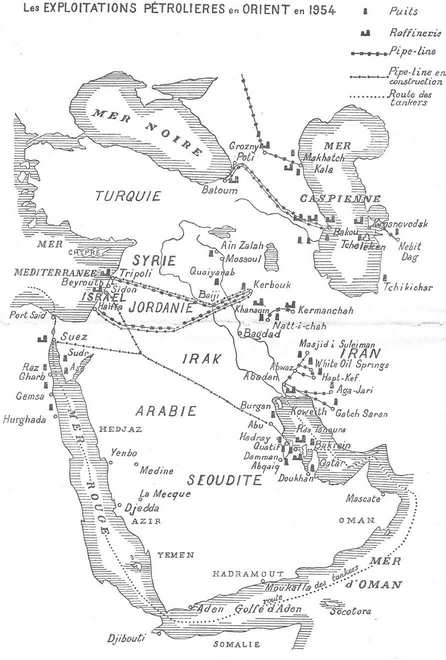


1924: Compagnie française des Pétroles opgericht
ID: 192400007211
Later wordt dit Total.
Création de la Compagnie française des pétroles ( CFP ) qui est chargée de gérer la part française de la Turkish Petroleum, constituée à partir des capitaux allemands confisqués en 1918.
http://crdp.ac-reims.fr/memoire/bac/1gm/dossiers/Moyen_orient.htm (20030623)
Création de la Compagnie française des pétroles ( CFP ) qui est chargée de gérer la part française de la Turkish Petroleum, constituée à partir des capitaux allemands confisqués en 1918.
http://crdp.ac-reims.fr/memoire/bac/1gm/dossiers/Moyen_orient.htm (20030623)
Land: FRA

25 februari 1920: oprichting Petrofina (Compagnie Financière Belge des Pétroles) te Antwerpen
ID: 192002251671
Land: BEL

1911: Turkish Petroleum Company opgericht met kapitaal TUR, GBR, DEU
ID: 191100004512
Création de la Turkish Petroleum Company, firme à capitaux turcs, britanniques et allemands
http://crdp.ac-reims.fr/memoire/bac/1gm/dossiers/Moyen_orient.htm (20030623)
http://crdp.ac-reims.fr/memoire/bac/1gm/dossiers/Moyen_orient.htm (20030623)
Land: TUR

1910: Petrocongo - Petrofina
ID: 191000005593
https://archives.africamuseum.be/agents/corporate_entities/26
Société des Pétroles. Petrocongo. Petrofina
Personne morale
Dates
Existence: 1910 - 1967
Historique
Constituée en 1910 pour approvisionner en pétrole les industries établies au Congo et les transports fluviaux, cette société entreprend dès sa création la construction d’un Pipe-line de 350 km reliant le port d’Ango-Ango au Stanley-Pool. En 1960, Pétrocongo opte pour le statut juridique belge, adopte la dénomination Petrocom (Société commerciale belge des pétroles) et constitue trois filiales congolaises : Pétrocongo, la Société des transport de carburants et Pétrokat. Petrocom est absorbée en 1967 par Petrofina.
Société des Pétroles. Petrocongo. Petrofina
Personne morale
Dates
Existence: 1910 - 1967
Historique
Constituée en 1910 pour approvisionner en pétrole les industries établies au Congo et les transports fluviaux, cette société entreprend dès sa création la construction d’un Pipe-line de 350 km reliant le port d’Ango-Ango au Stanley-Pool. En 1960, Pétrocongo opte pour le statut juridique belge, adopte la dénomination Petrocom (Société commerciale belge des pétroles) et constitue trois filiales congolaises : Pétrocongo, la Société des transport de carburants et Pétrokat. Petrocom est absorbée en 1967 par Petrofina.
Land: COD

olie gevonden in Perzië = eerste olievondst in Midden-Oosten
ID: 190805004573
BP's origins date back to May 1901, when a wealthy Englishman, William Knox D'Arcy, obtained a concession from the Shah of Persia to explore for and develop the oil resources of that country. As exploration continued, costs mounted, stretching D'Arcy's resources to the point where he sought outside financial assistance. This came in 1905 from the Burmah Oil Company, which provided new funds for D'Arcy's venture. In May 1908, he struck oil at Masjid-i-Suleiman in southwest Persia. It was the first commercial oil discovery in the Middle East.
In 1909, Anglo-Persian Oil was formed to develop the oil field. Later renamed as British Petroleum, the company's name was shortened to BP to reflect a continuing global expansion. Over the years, BP made many important discoveries, including fields in the North Sea near Scotland and at Prudhoe Bay in Alaska.
http://www.bpfutures.com/about_bp/history.asp (20030915)
In 1909, Anglo-Persian Oil was formed to develop the oil field. Later renamed as British Petroleum, the company's name was shortened to BP to reflect a continuing global expansion. Over the years, BP made many important discoveries, including fields in the North Sea near Scotland and at Prudhoe Bay in Alaska.
http://www.bpfutures.com/about_bp/history.asp (20030915)
Land: IRN

10 januari 1870: stichting van Standard Oil door John D. Rockefeller
ID: 187001105474
http://www.brainyhistory.com/years/1870.html
Land: USA

1861: eerste 40 olievaten in Antwerpen gelost
ID: 186100005573
1861: Voor het eerst wordt in Antwerpen - en waarschijnlijk voor het eerst in een Europese haven - petroleum in vaten gelost (40 stuks). Een jaar later waren het er reeds 36.000, in 1864 kwam een derde van de Amerikaanse olieproductie in een honderdtal schepen naar Antwerpen. [zeil&stoom-1976, p.53].
- Prims, in zijn Geschiedenis van Antwerpen (prims-1985-8, p.154-155) situeert de eerste ingevoerde aardolie in 1860; ook citeert hij een stuk uit het verslag van de Handelskamer voor 1862 omtrent dit nieuwe importartikel. Enkele pagina's verder (prims-1985-8, p.183) volgt evenwel deze passus: "We verhaalden boven, hoe deze 'aardolie' in 1861 voor 't eerst hier in hoeveelheden toekwam [...].".
http://www.strecker.be/2004/2004frames.htm (20060128)
- Prims, in zijn Geschiedenis van Antwerpen (prims-1985-8, p.154-155) situeert de eerste ingevoerde aardolie in 1860; ook citeert hij een stuk uit het verslag van de Handelskamer voor 1862 omtrent dit nieuwe importartikel. Enkele pagina's verder (prims-1985-8, p.183) volgt evenwel deze passus: "We verhaalden boven, hoe deze 'aardolie' in 1861 voor 't eerst hier in hoeveelheden toekwam [...].".
http://www.strecker.be/2004/2004frames.htm (20060128)
Land: BEL

